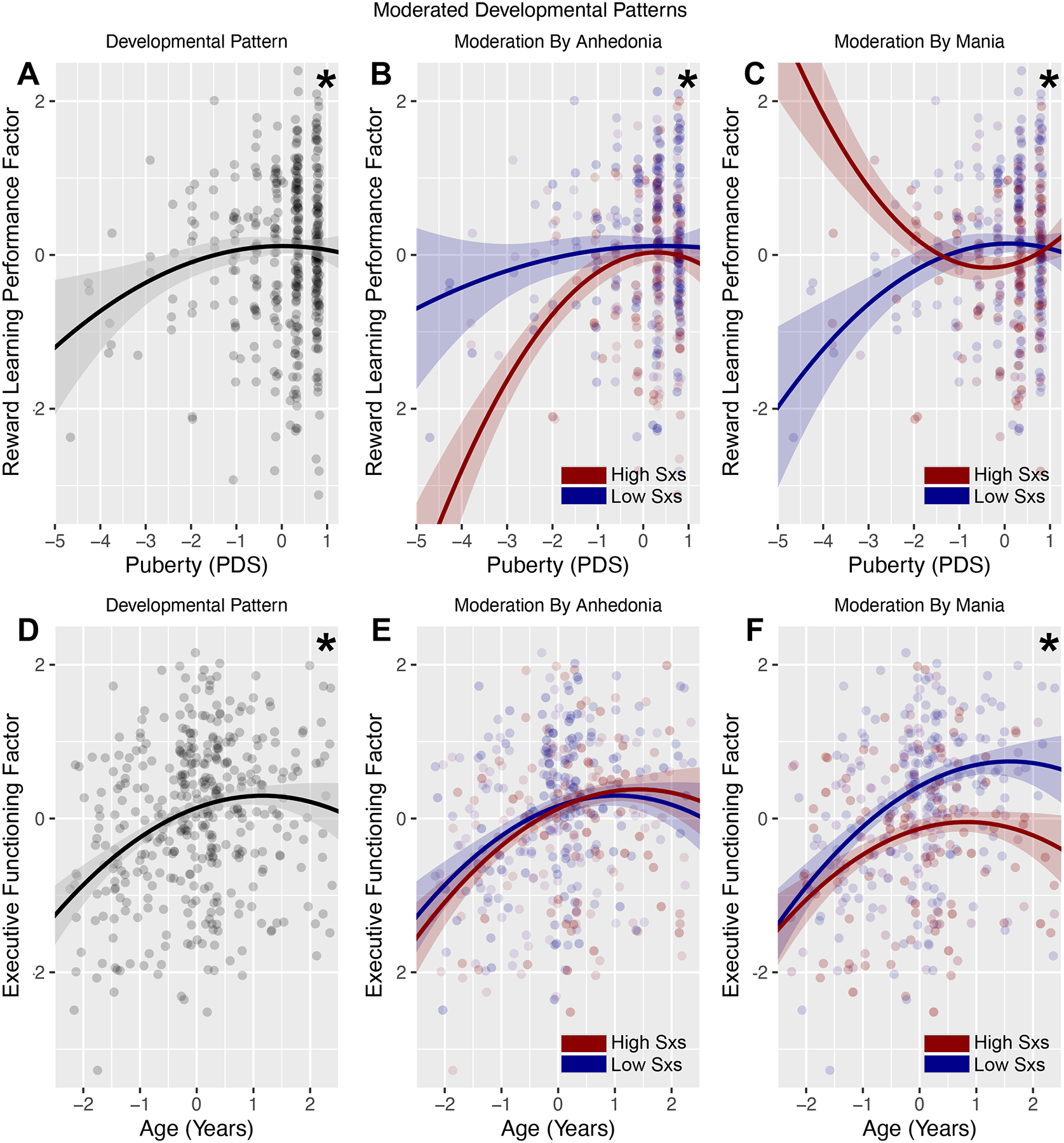Figure 2. Mood symptom severity moderates developmental differences in reward learning performance and executive functioning.

(A) Quadratic association between pubertal stage and reward learning performance factor scores. (B) Higher severity of anhedonic depression was associated with stronger quadratic pubertal differences in reward learning performance, including lower reward learning performance at earlier pubertal stages. (C) Higher severity of mania was associated with weaker or reversed quadratic pubertal differences in reward learning performance, including higher reward learning performance at earlier pubertal stages. (D) Curvilinear (linear and quadratic effects) association between age and executive functioning factor scores. (E) Severity of anhedonic depression did not significantly moderate age differences in executive functioning. (F) Higher severity of mania moderated linear age differences in executive functioning, in the form of poorer executive functioning especially at older ages. Note: Plots show extracted factor scores on the y axes for ease of presentation, but statistical associations among variables were estimated using structural equation models in which reward learning performance and executive functioning were modeled as latent variables. Displayed are lines fitted to models at low (−1.5 SD, blue) or high (+1.5 SD, red) levels of symptom severity, and point color is scaled to low (blue) to high (red) symptom severity. *p<0.05 developmental (A, D) or moderated (B-C, E-F) effects.
